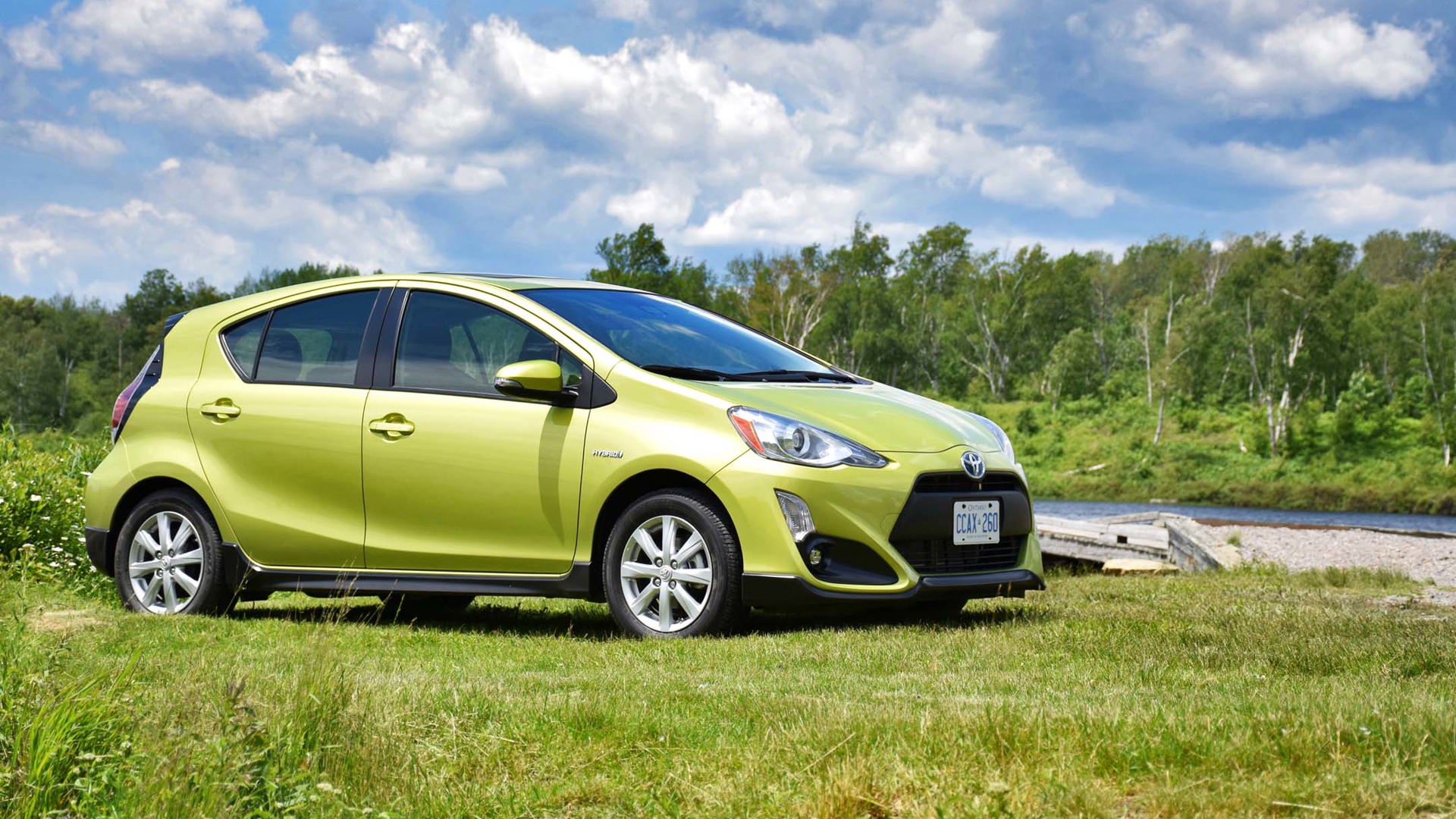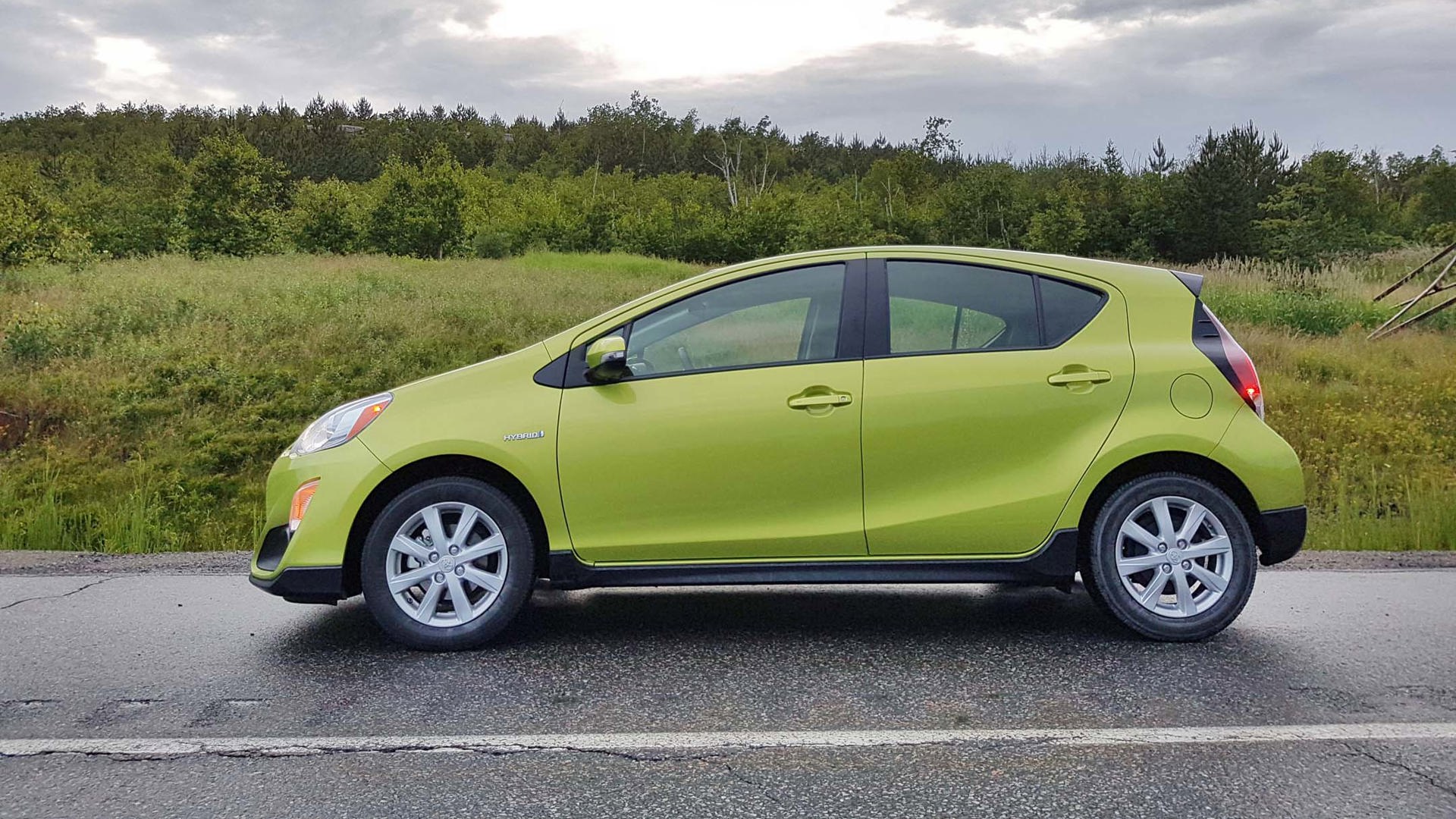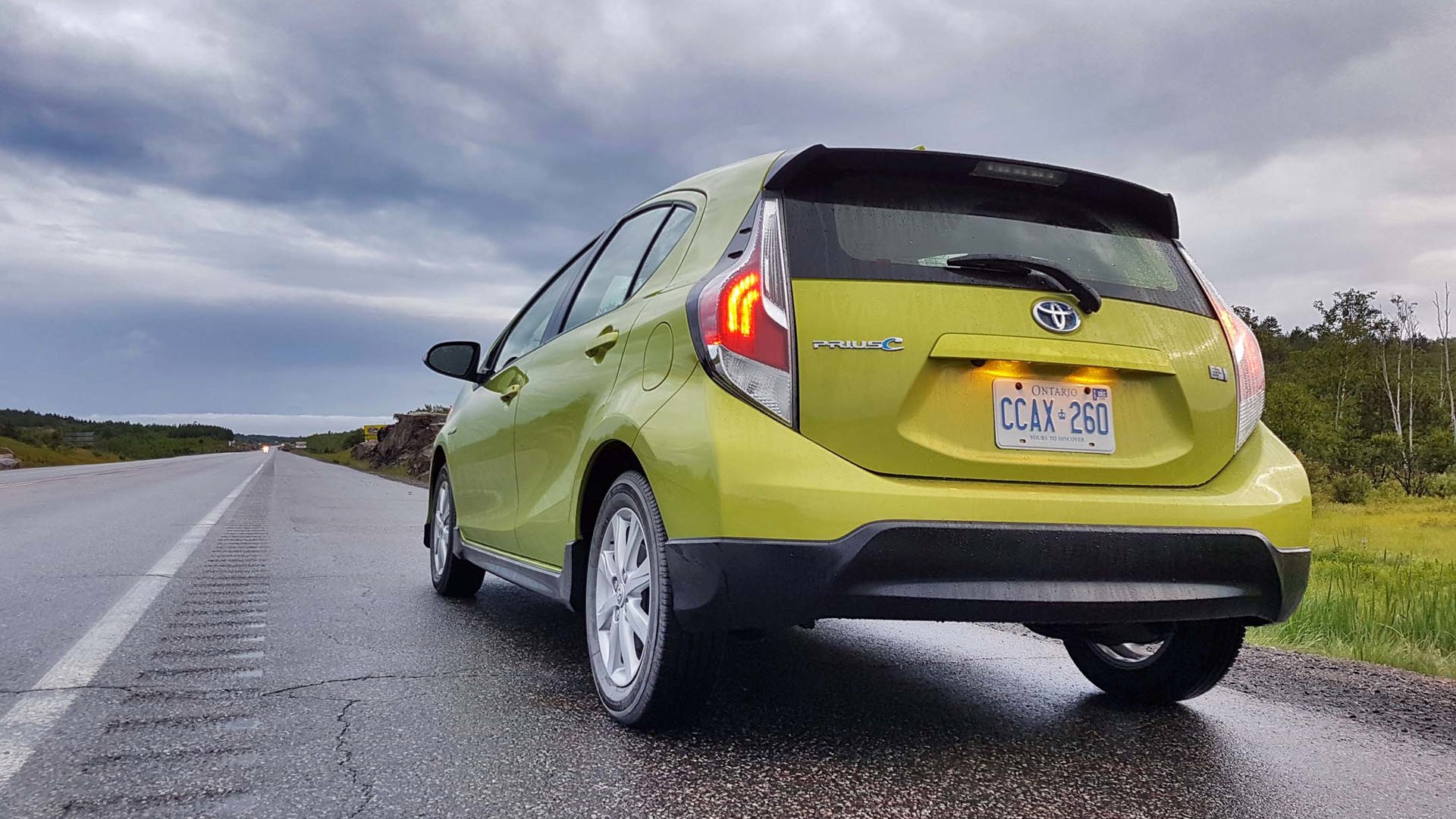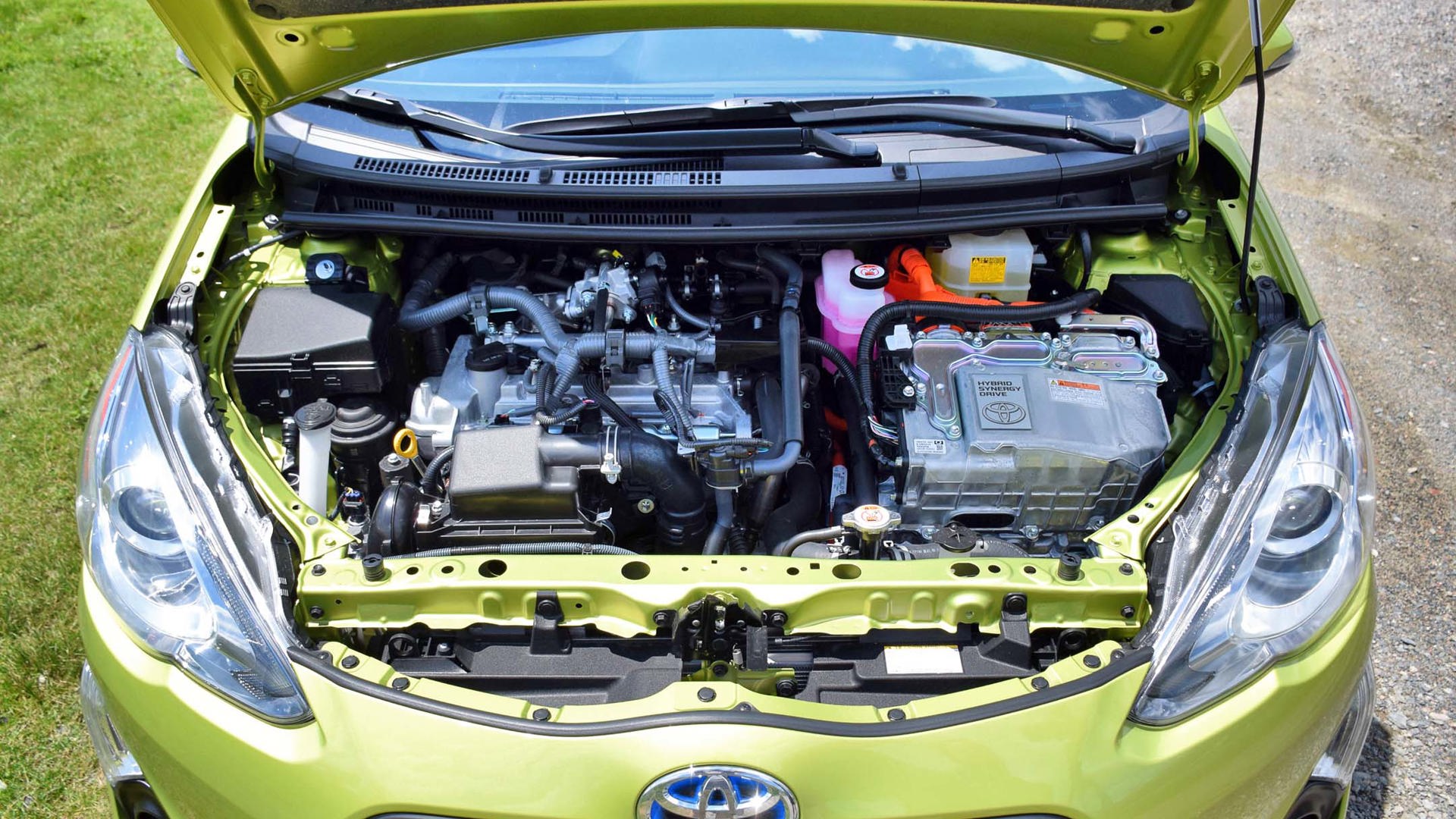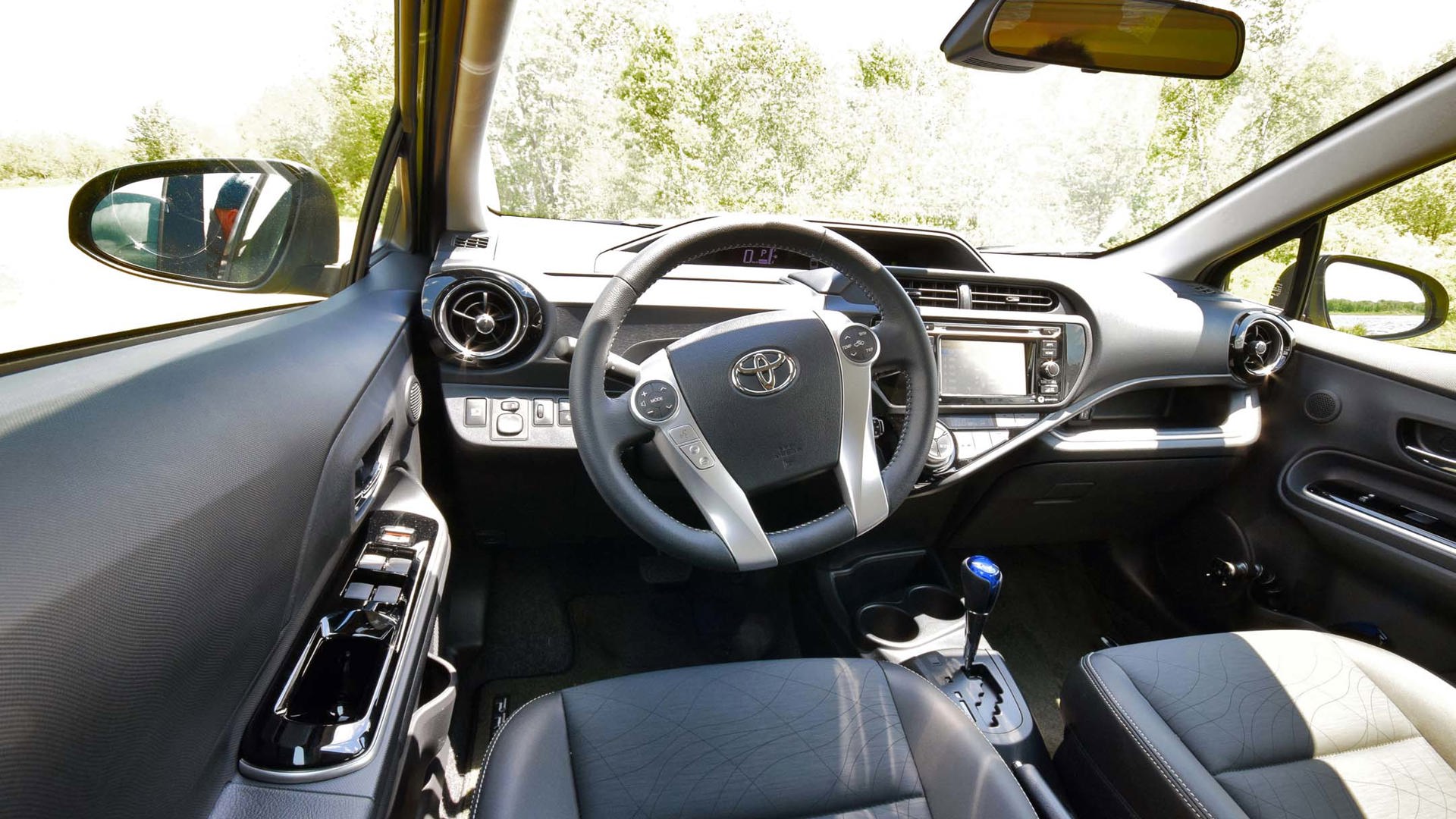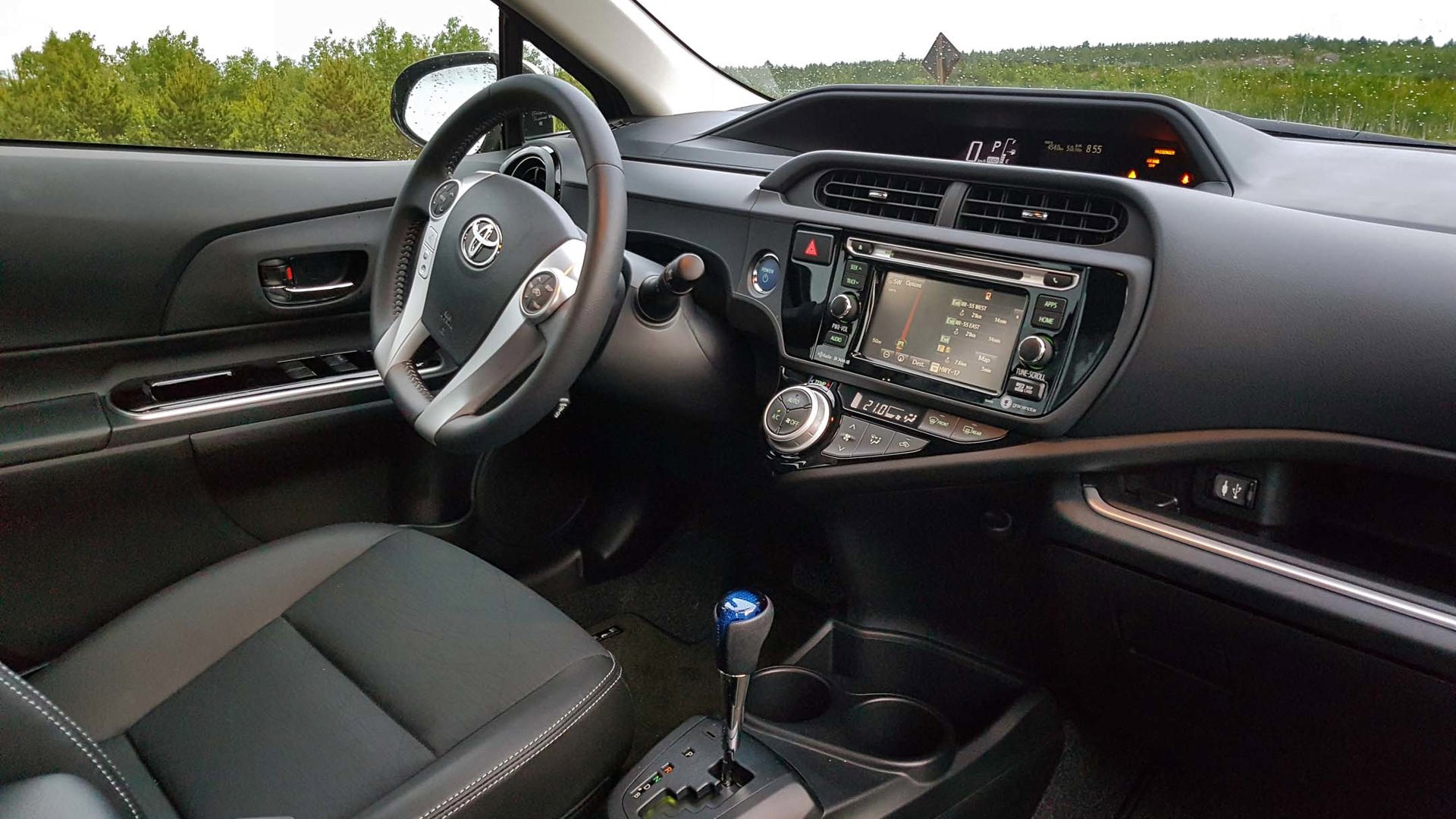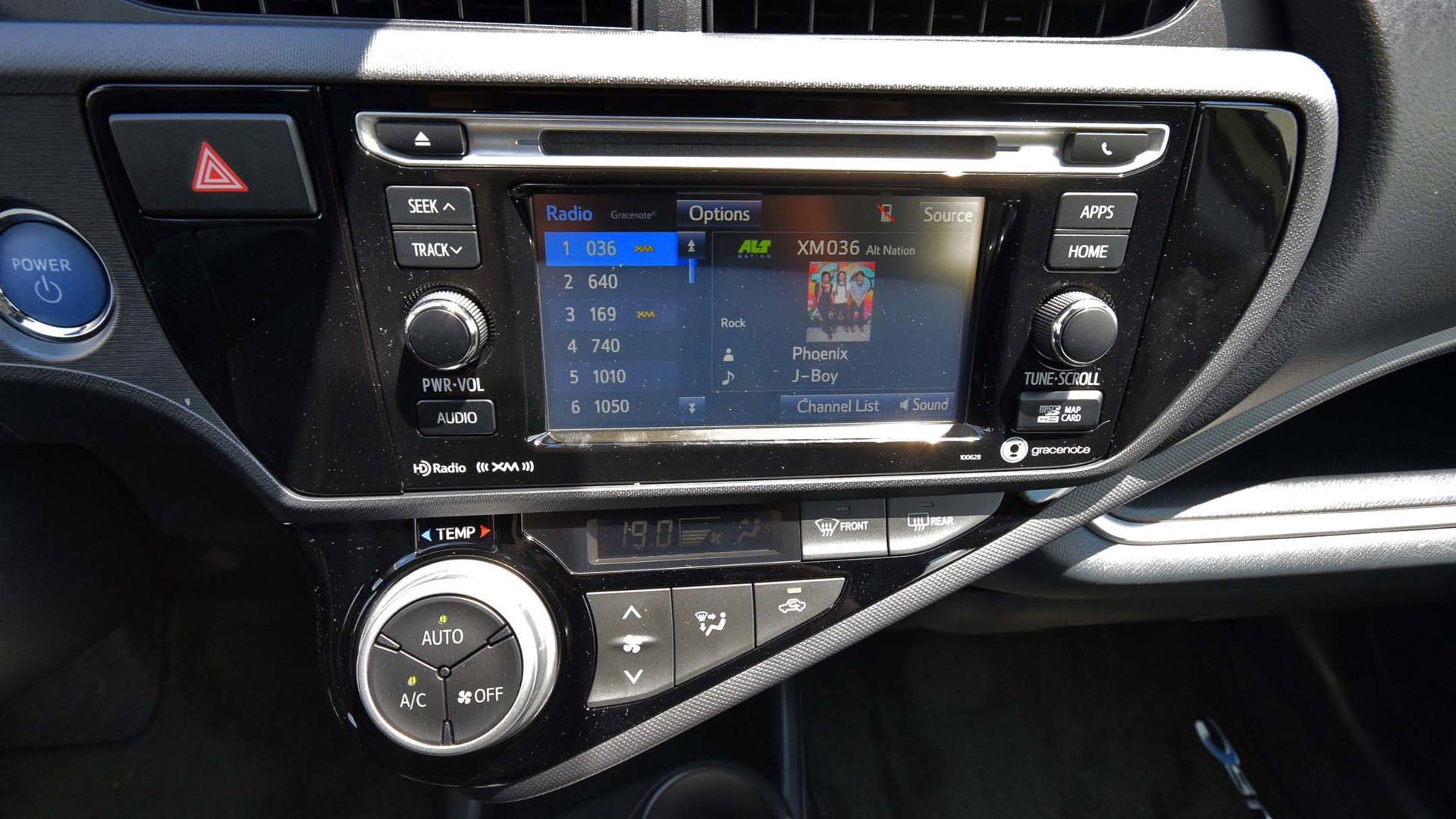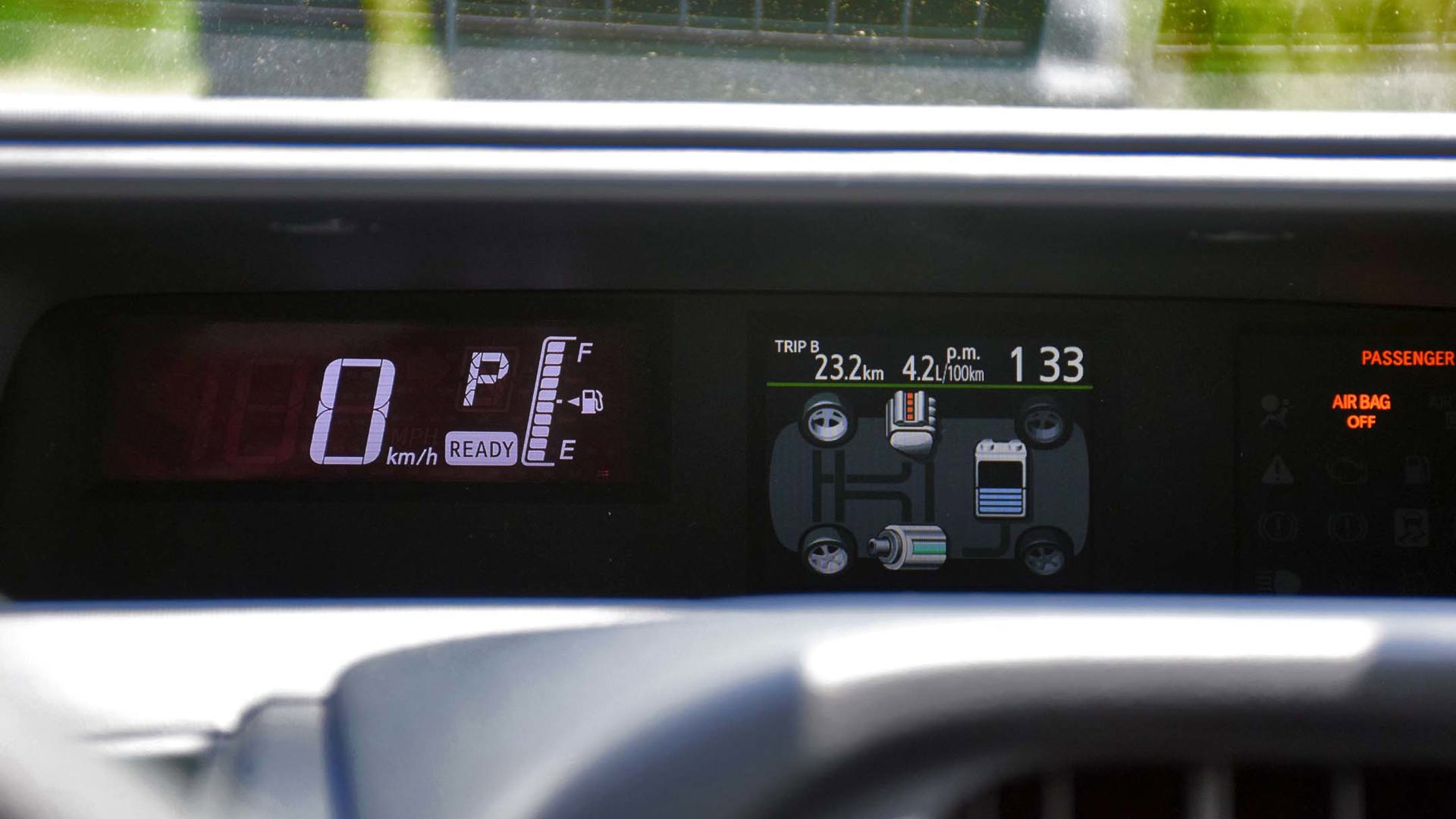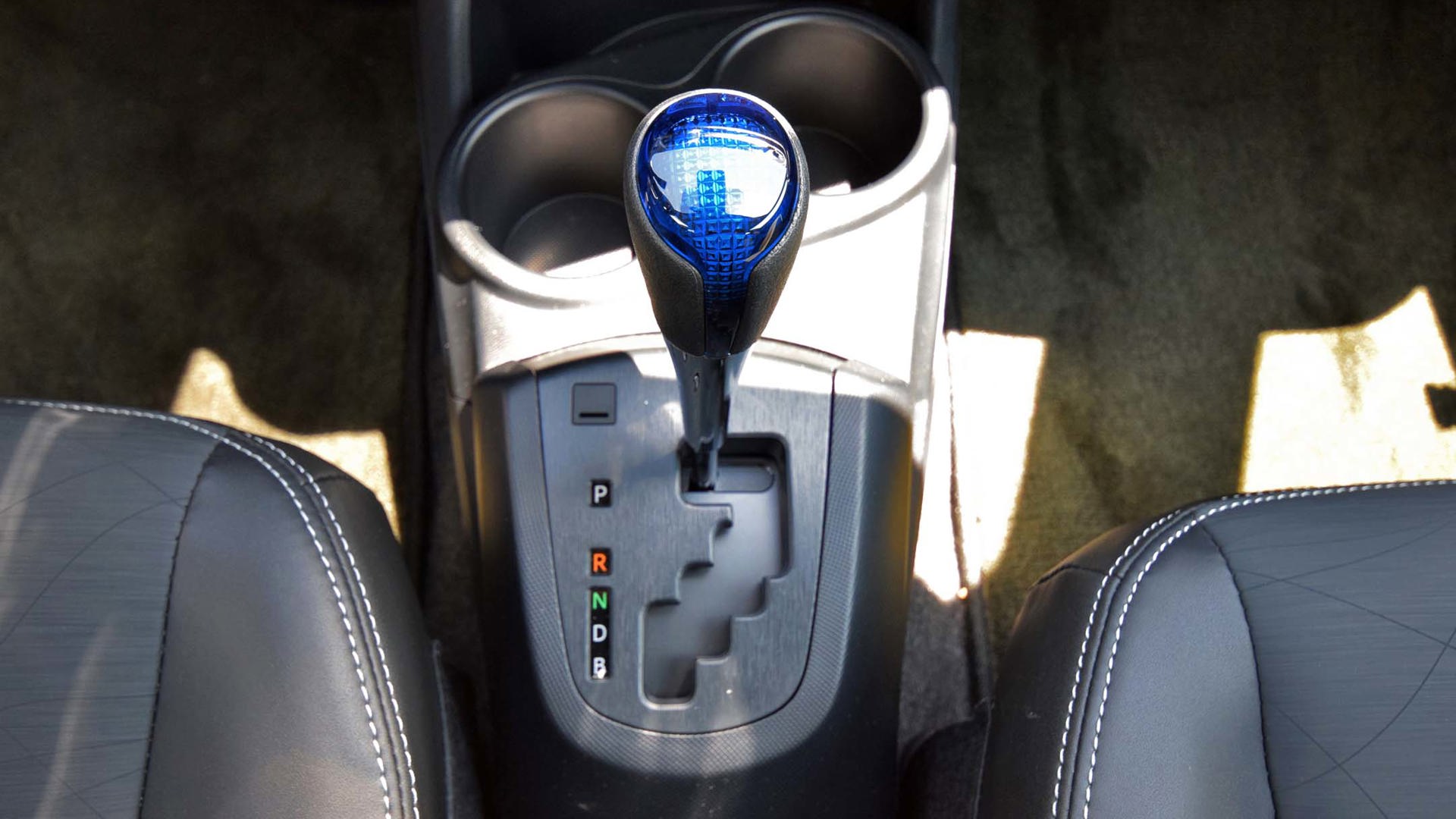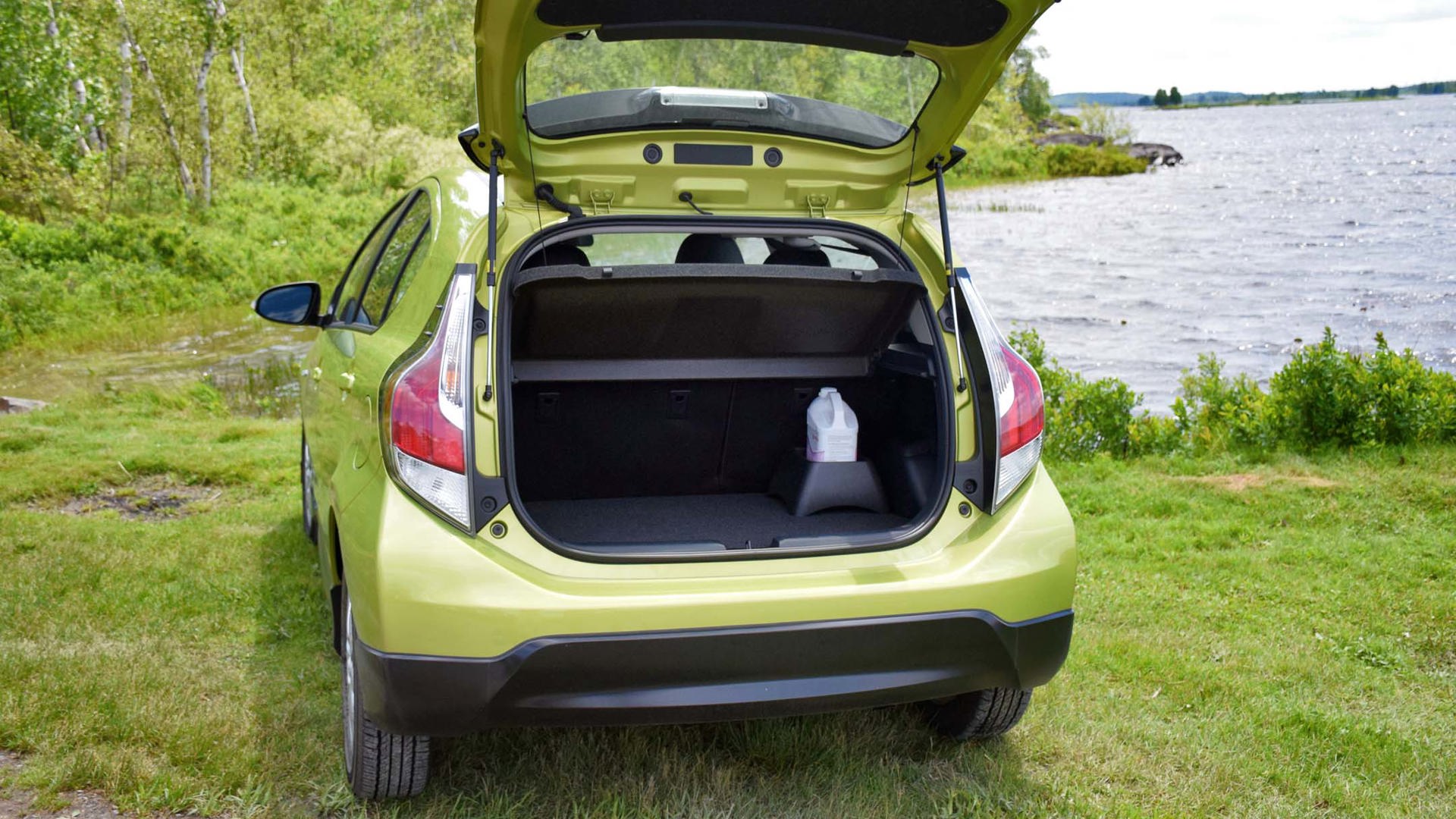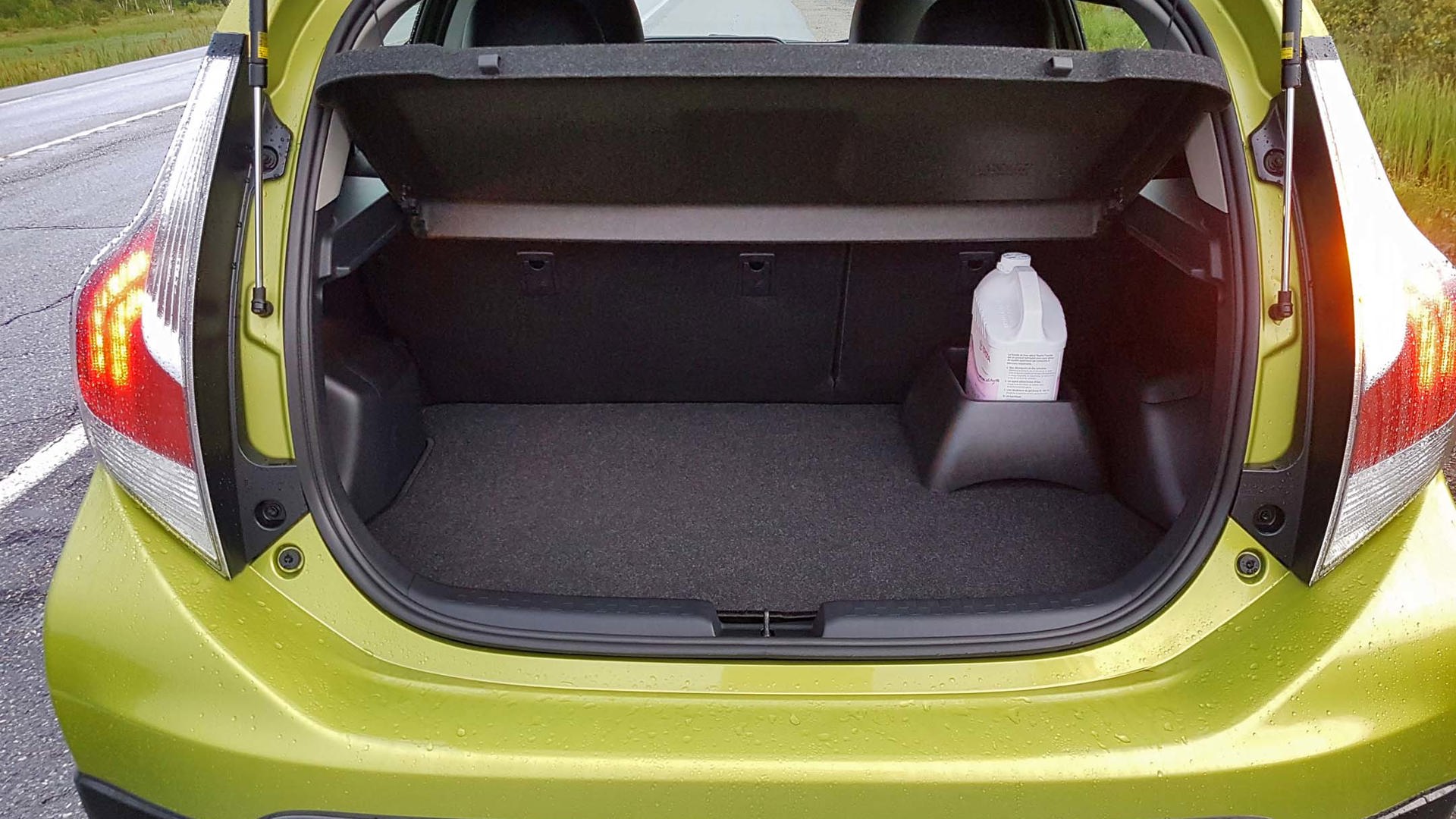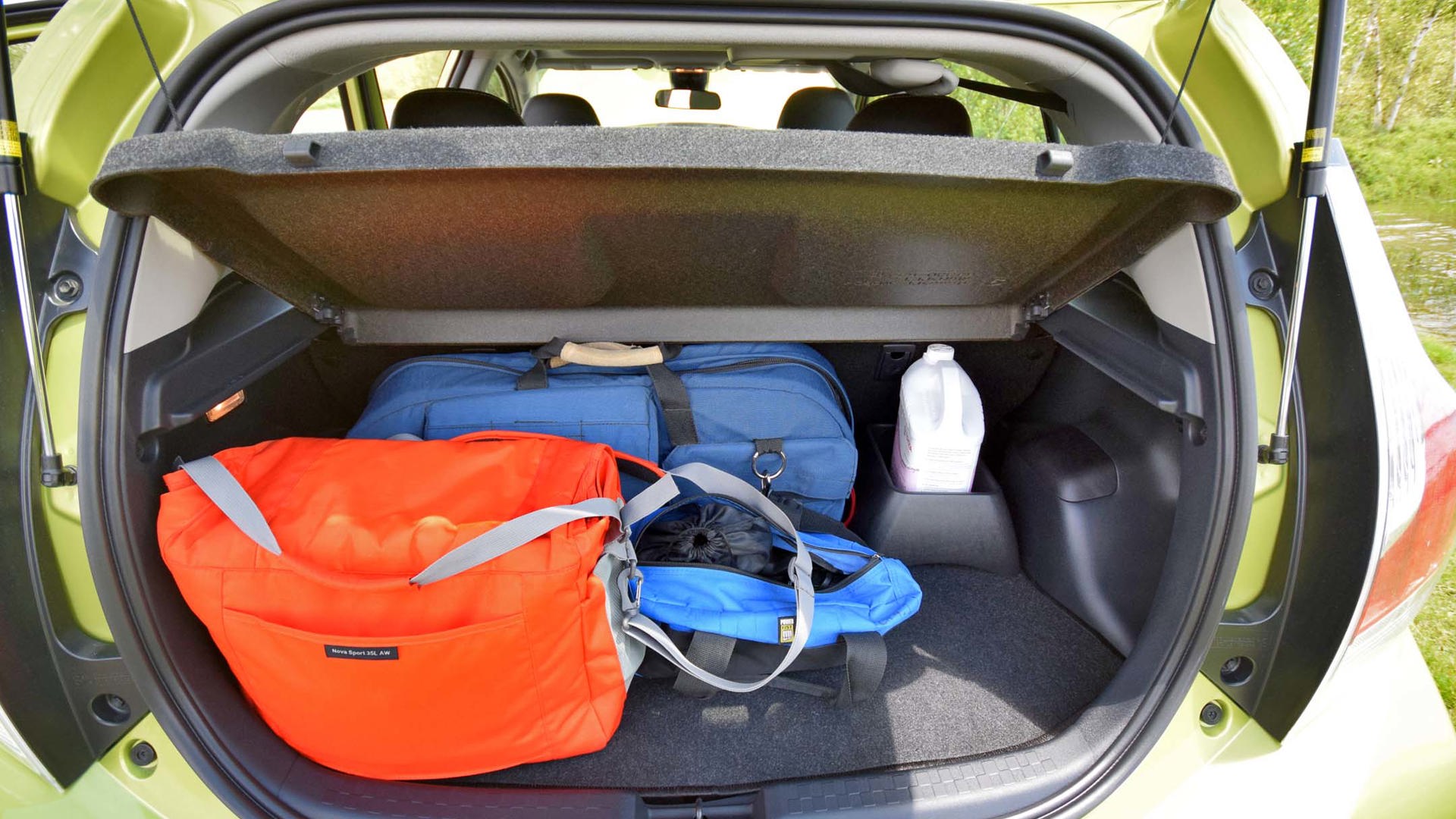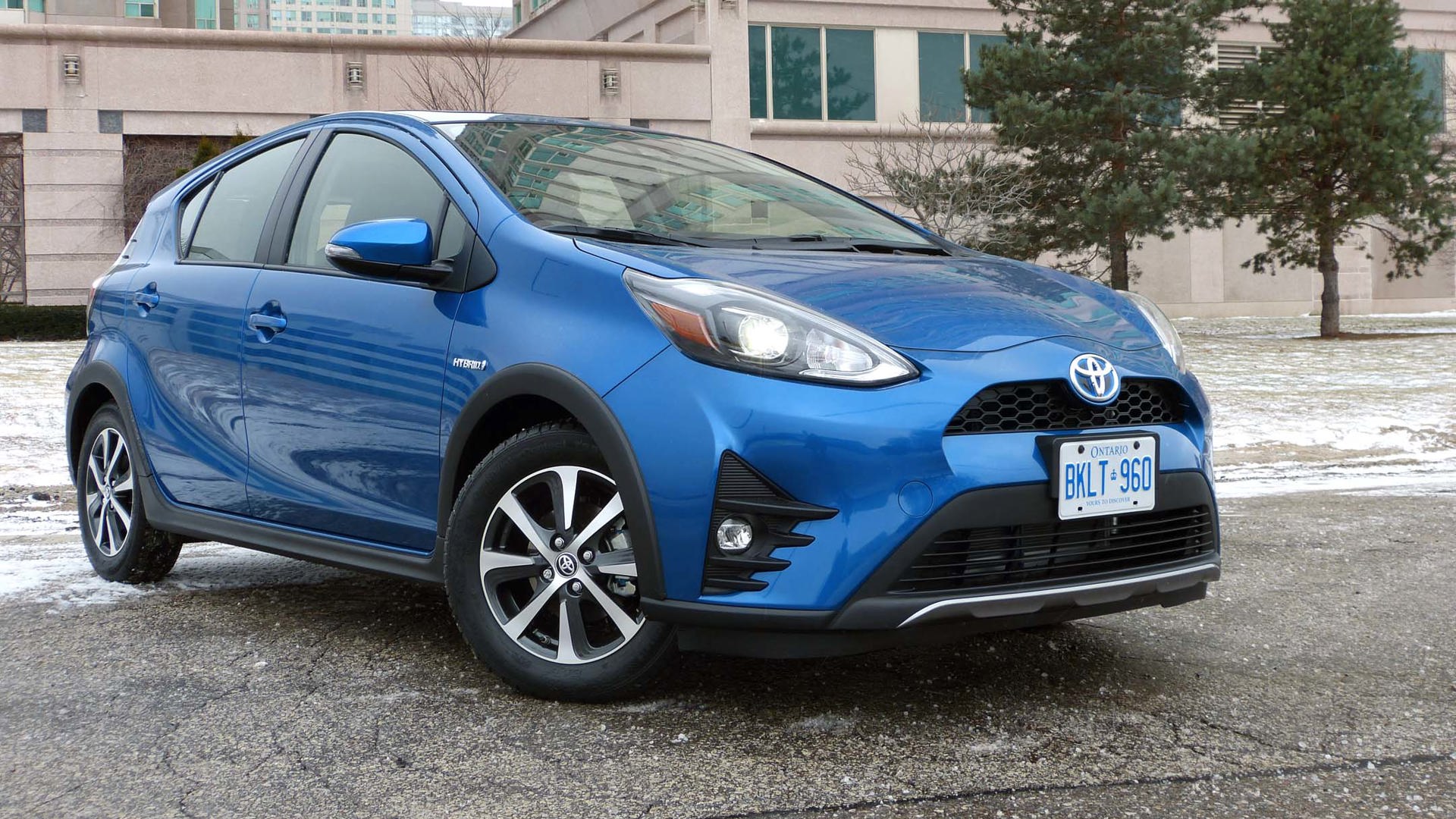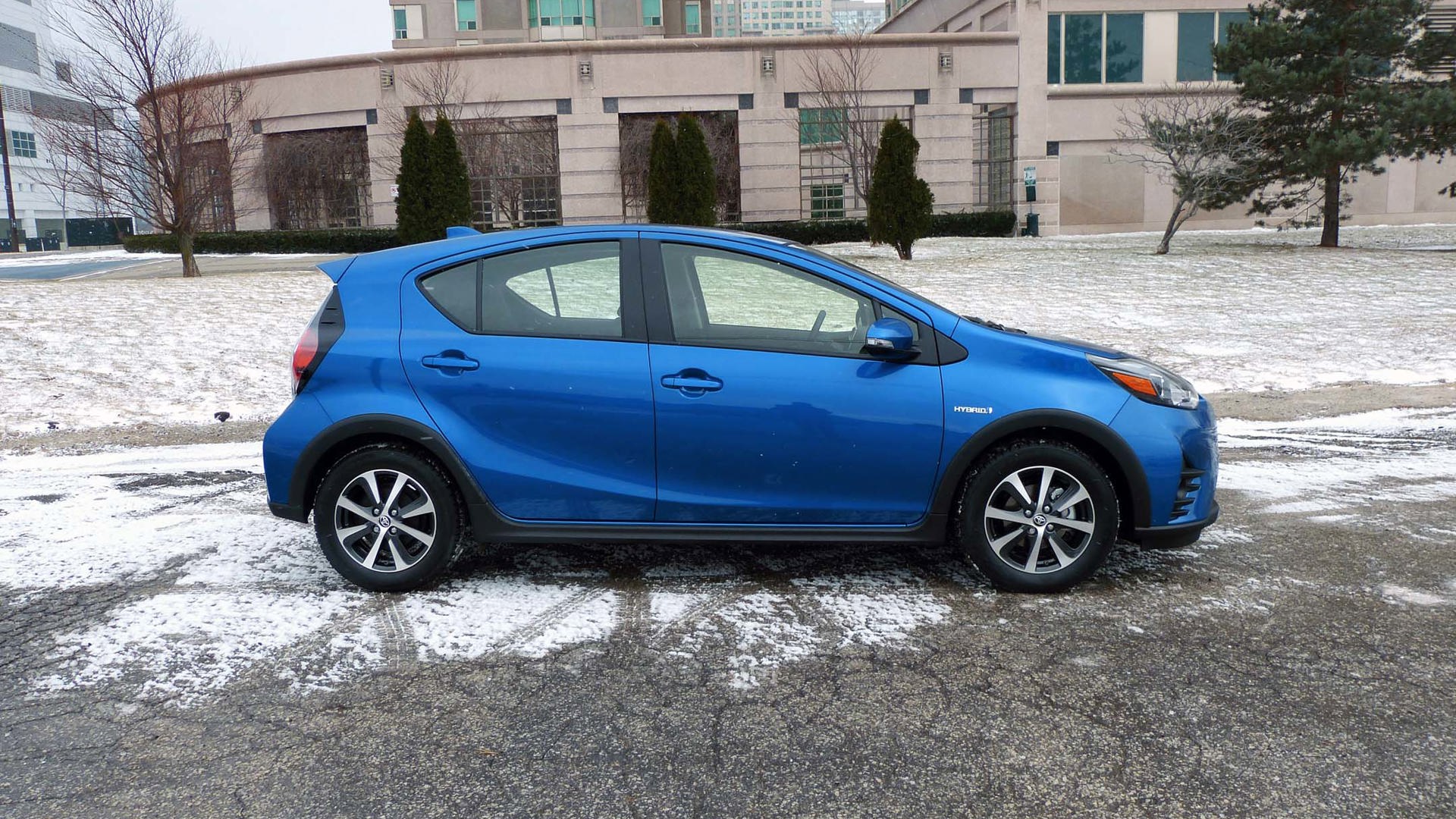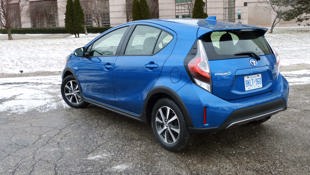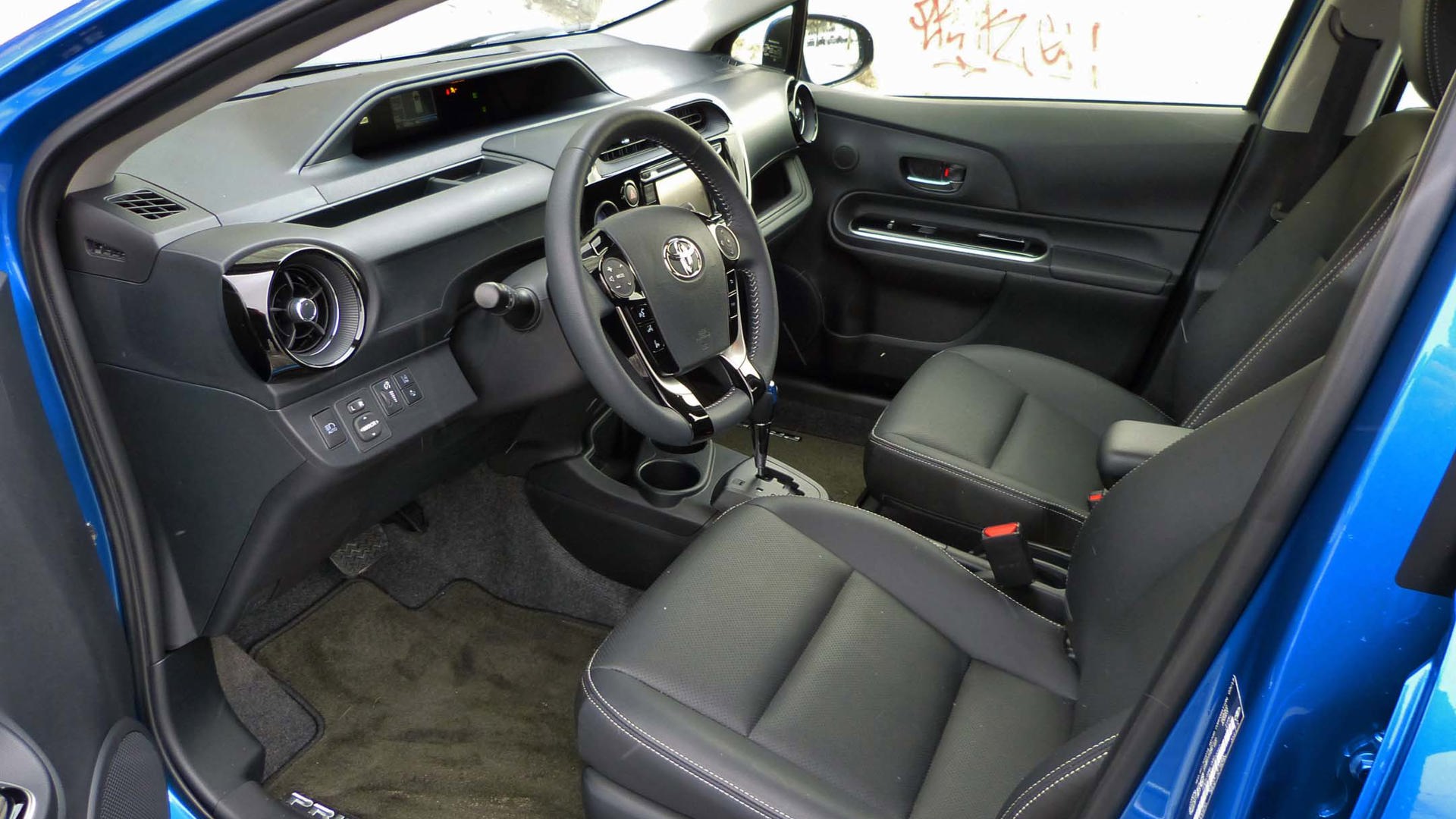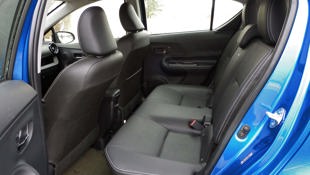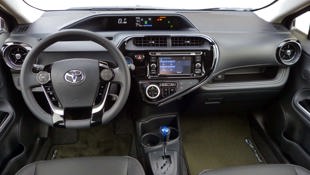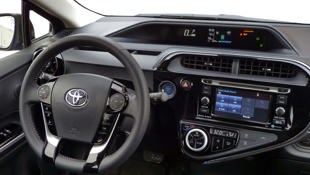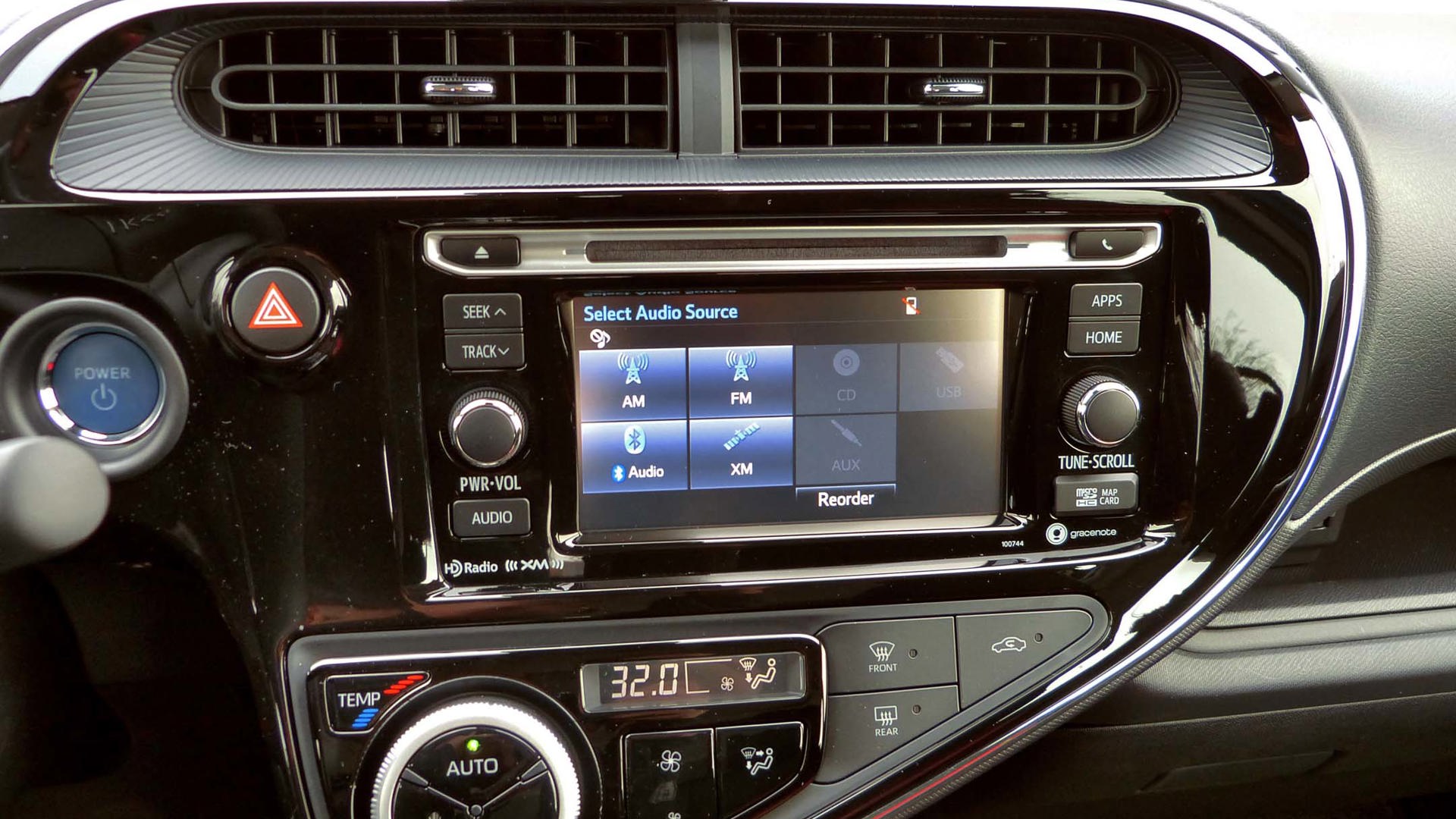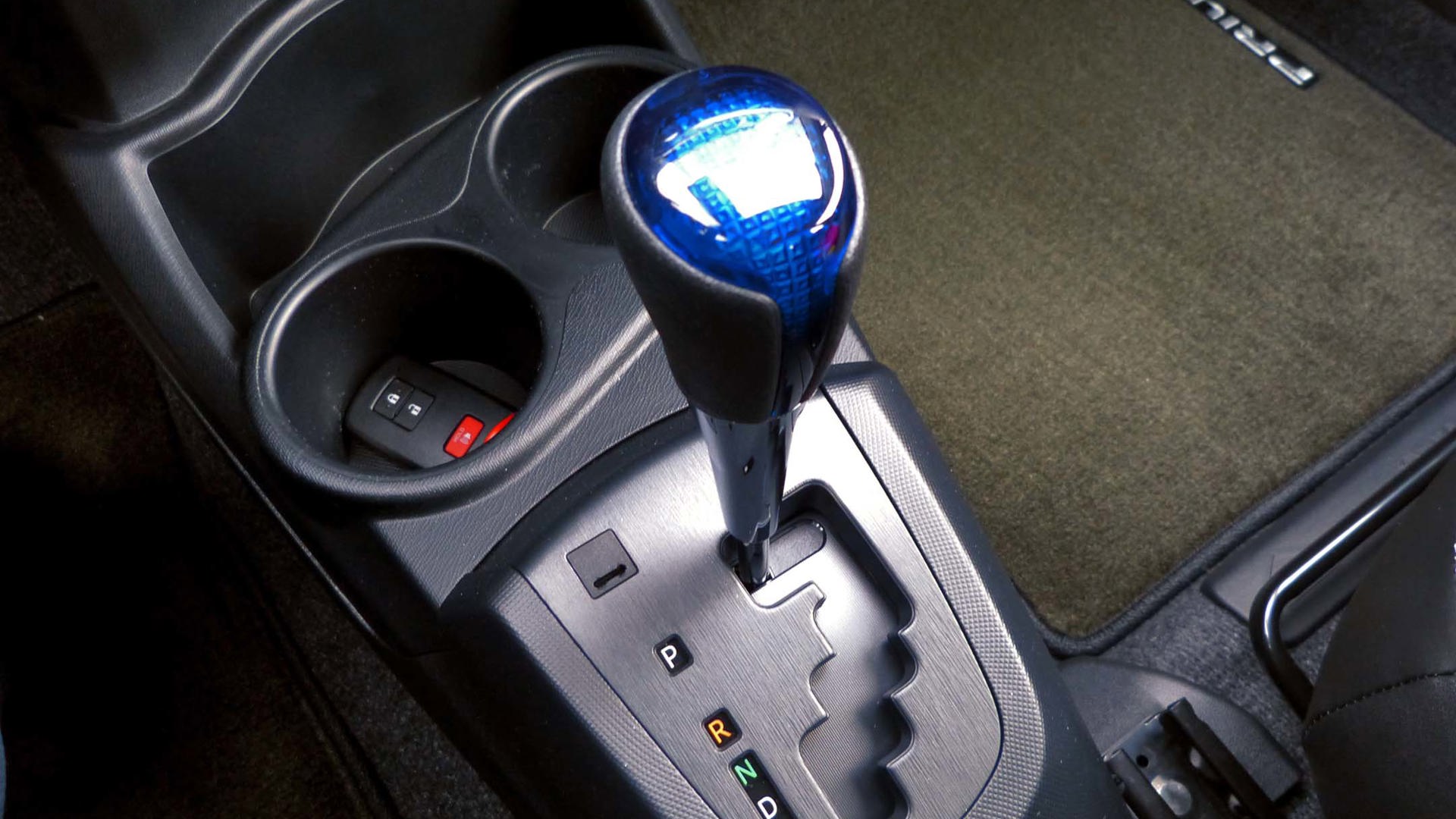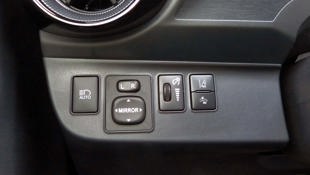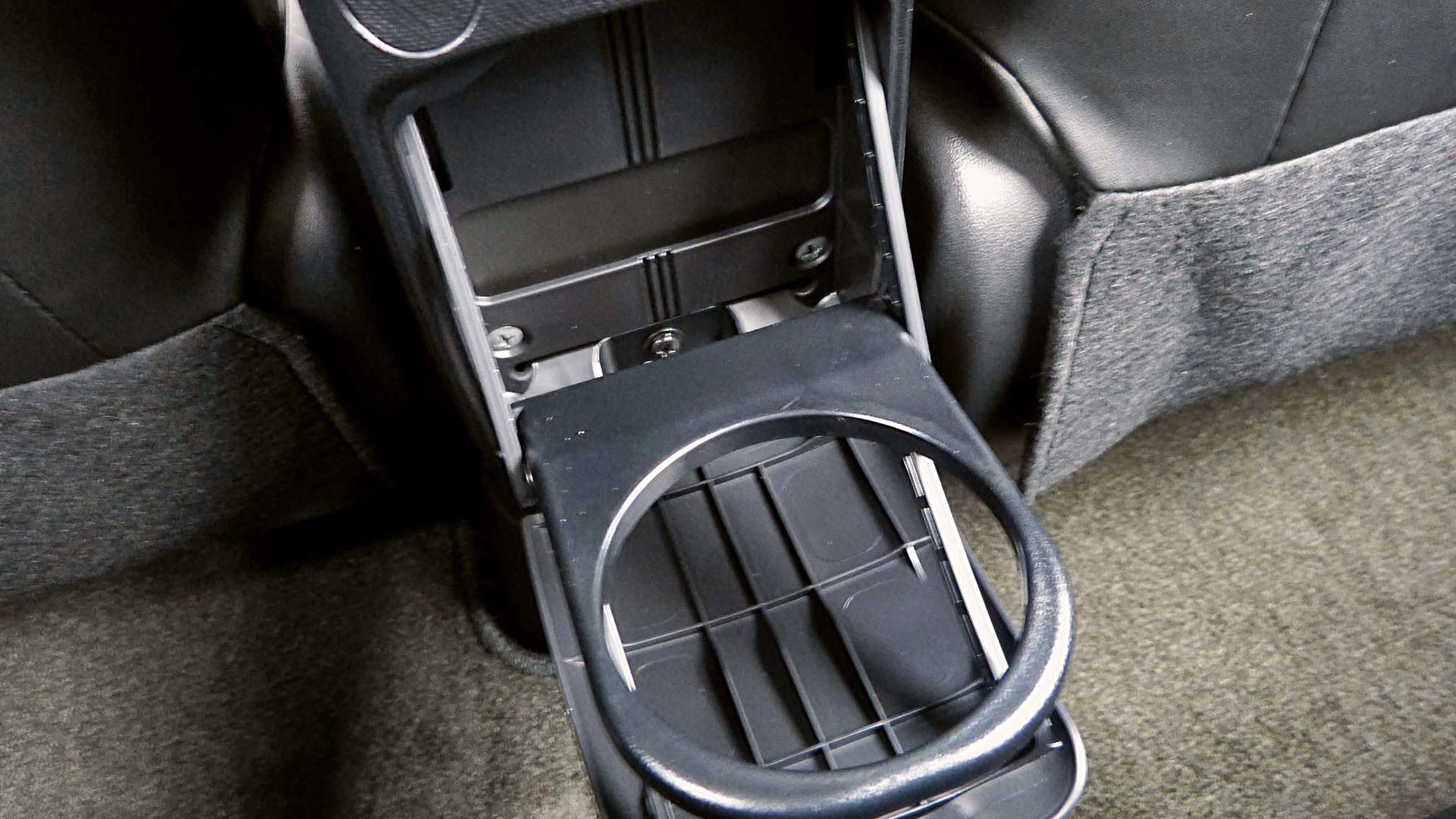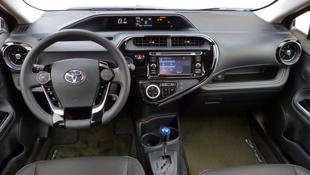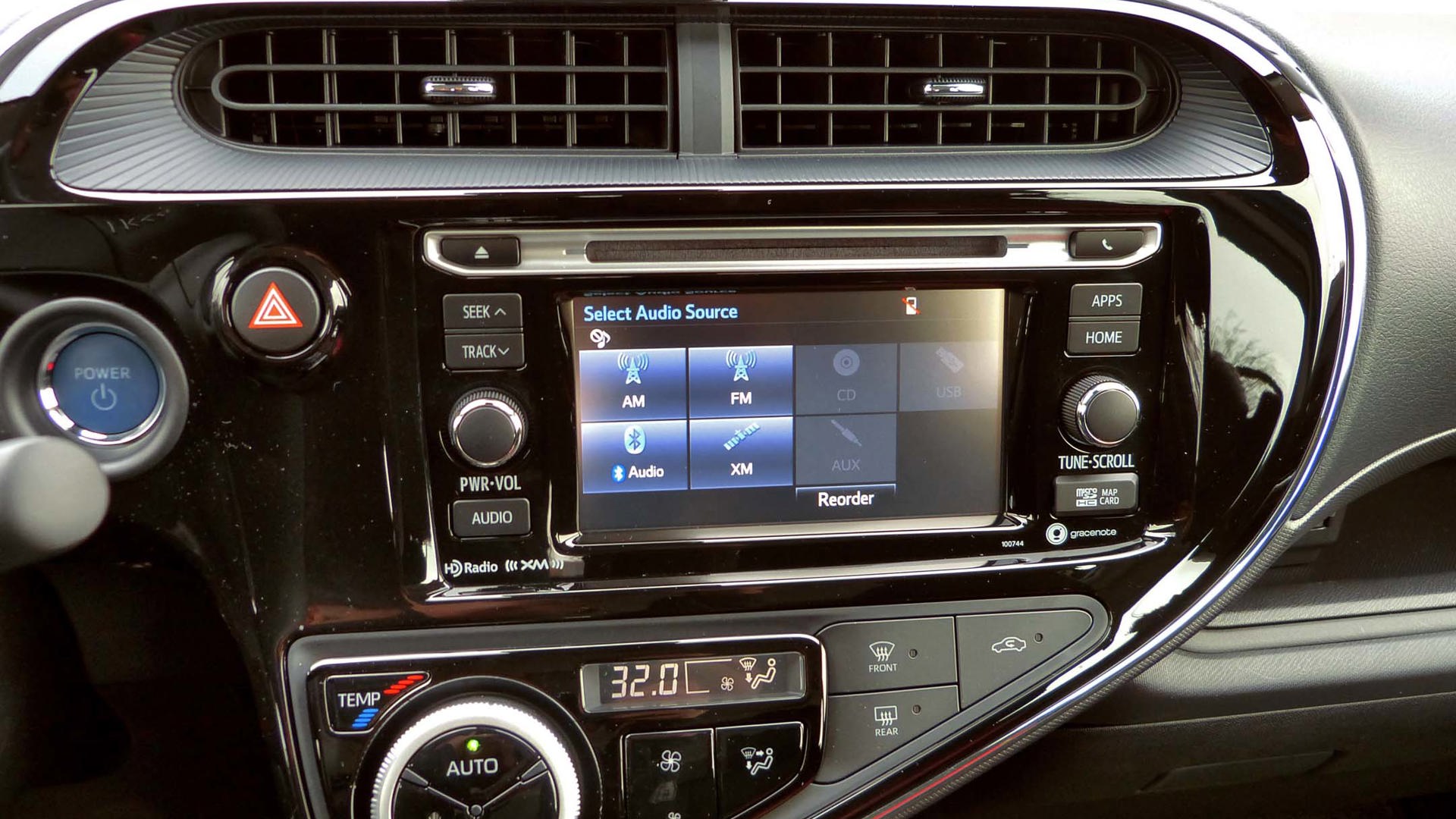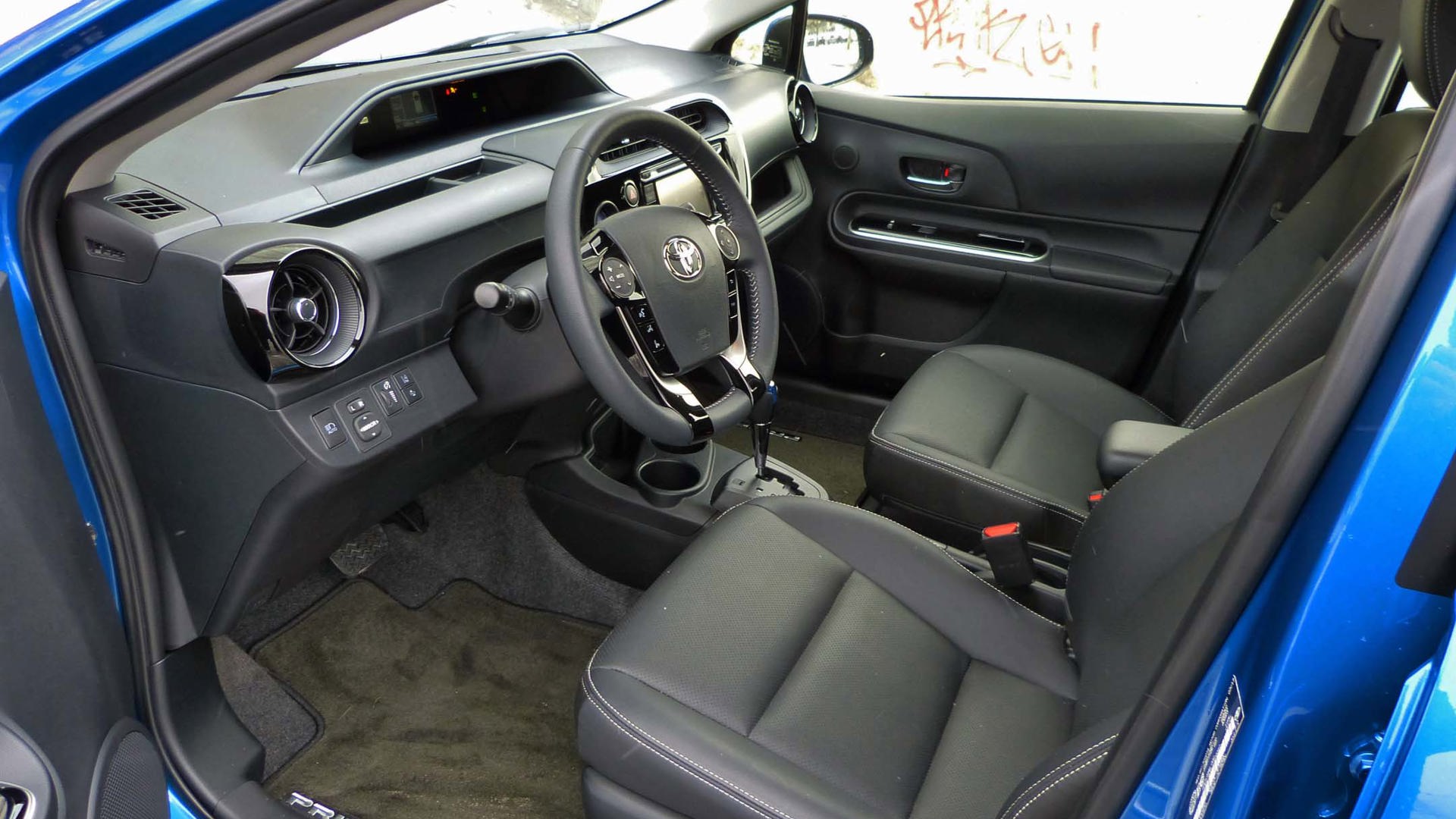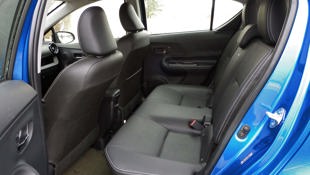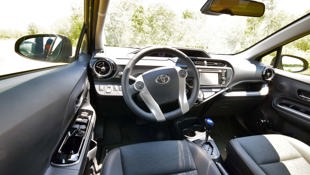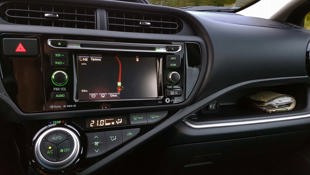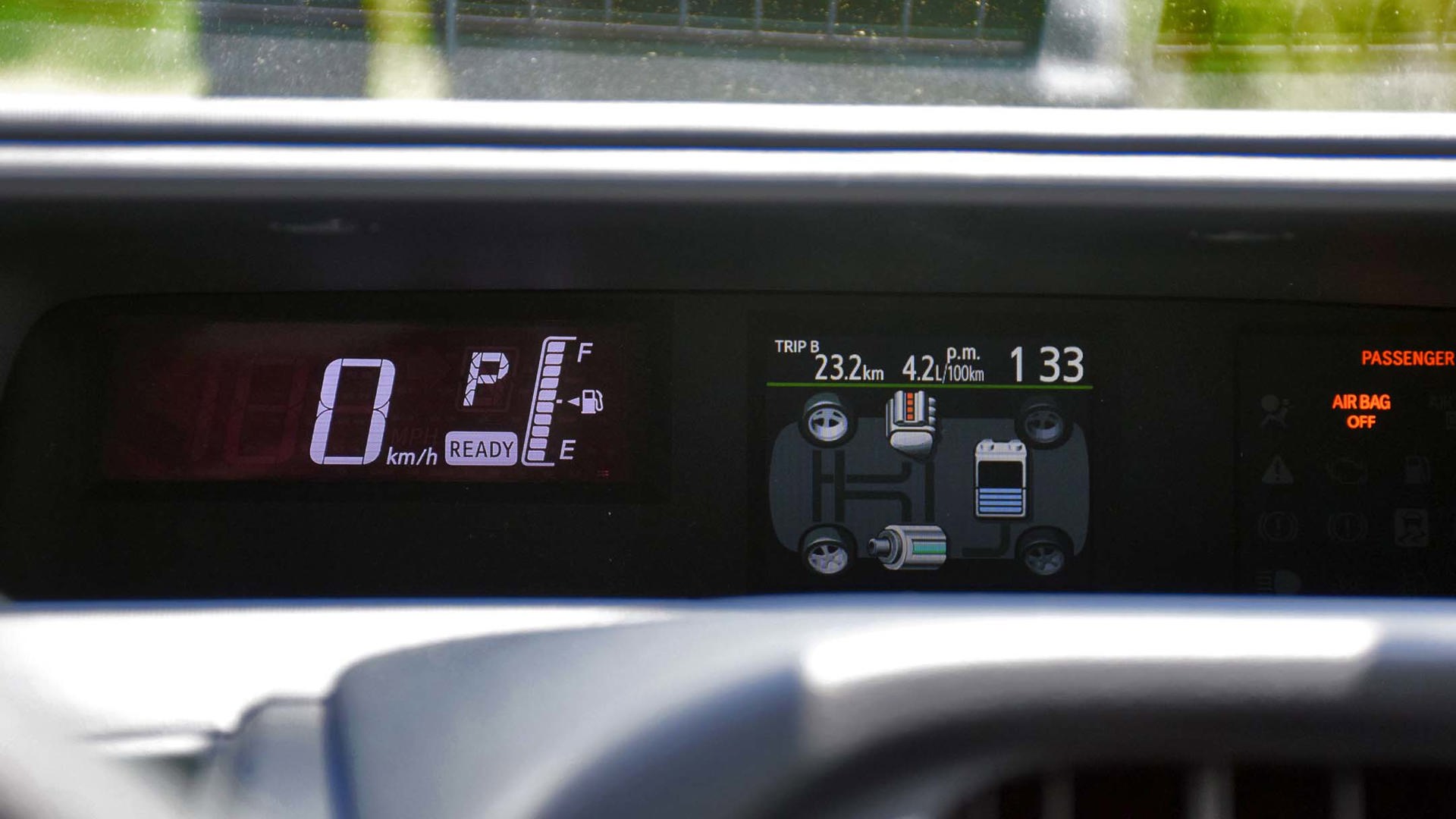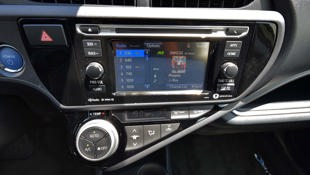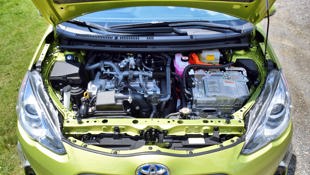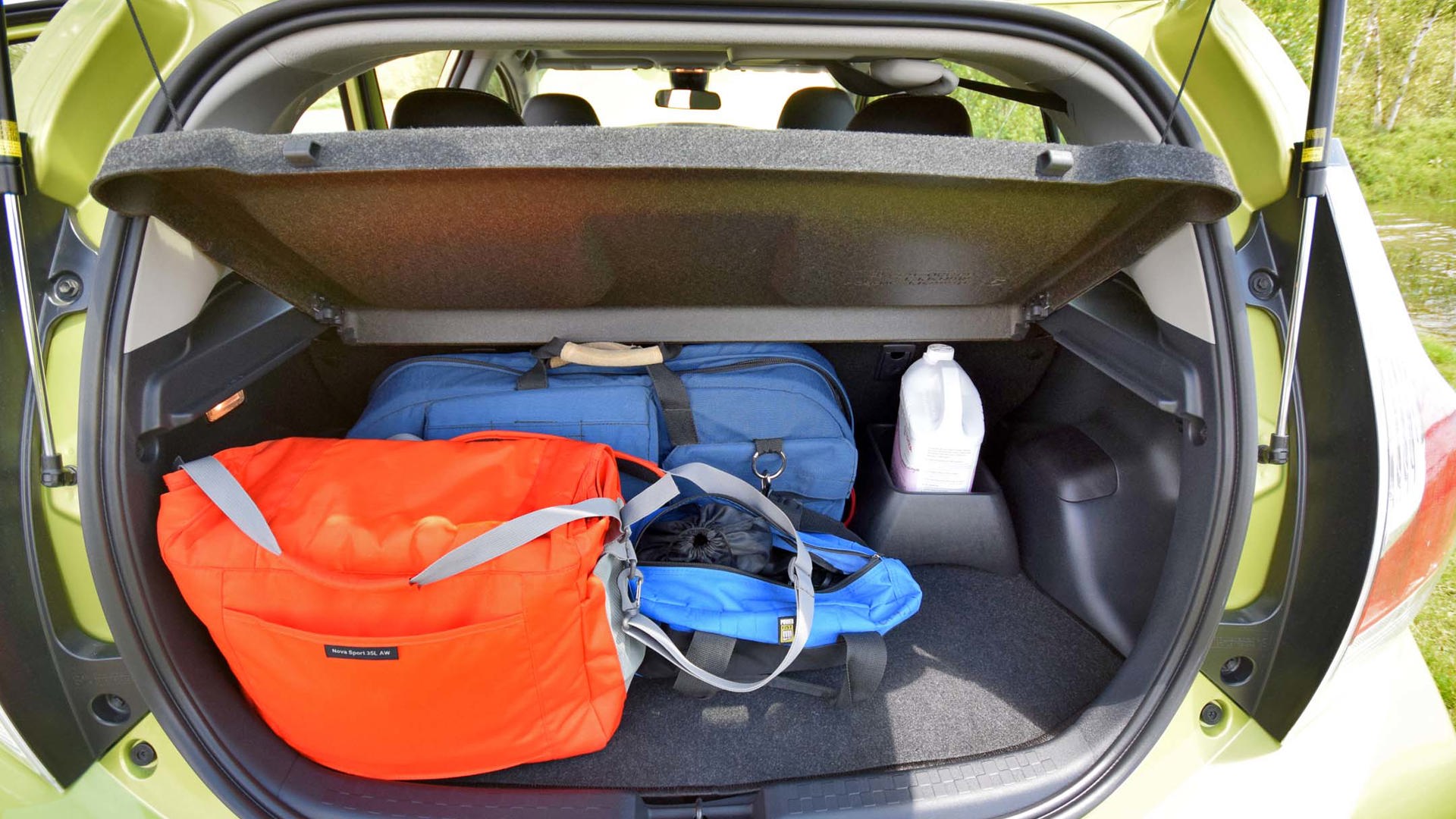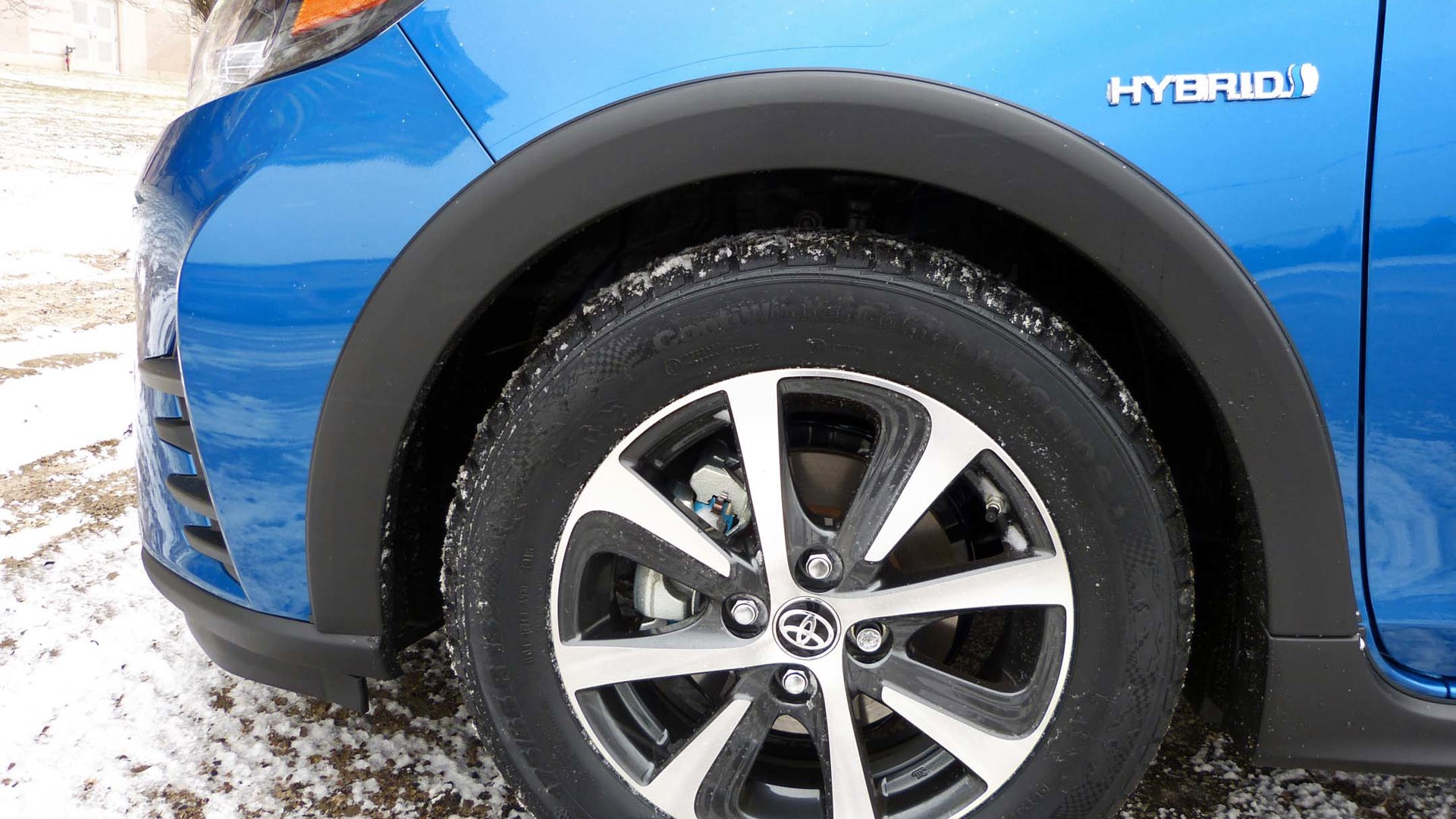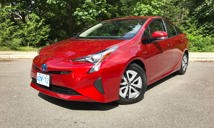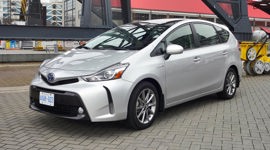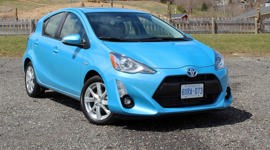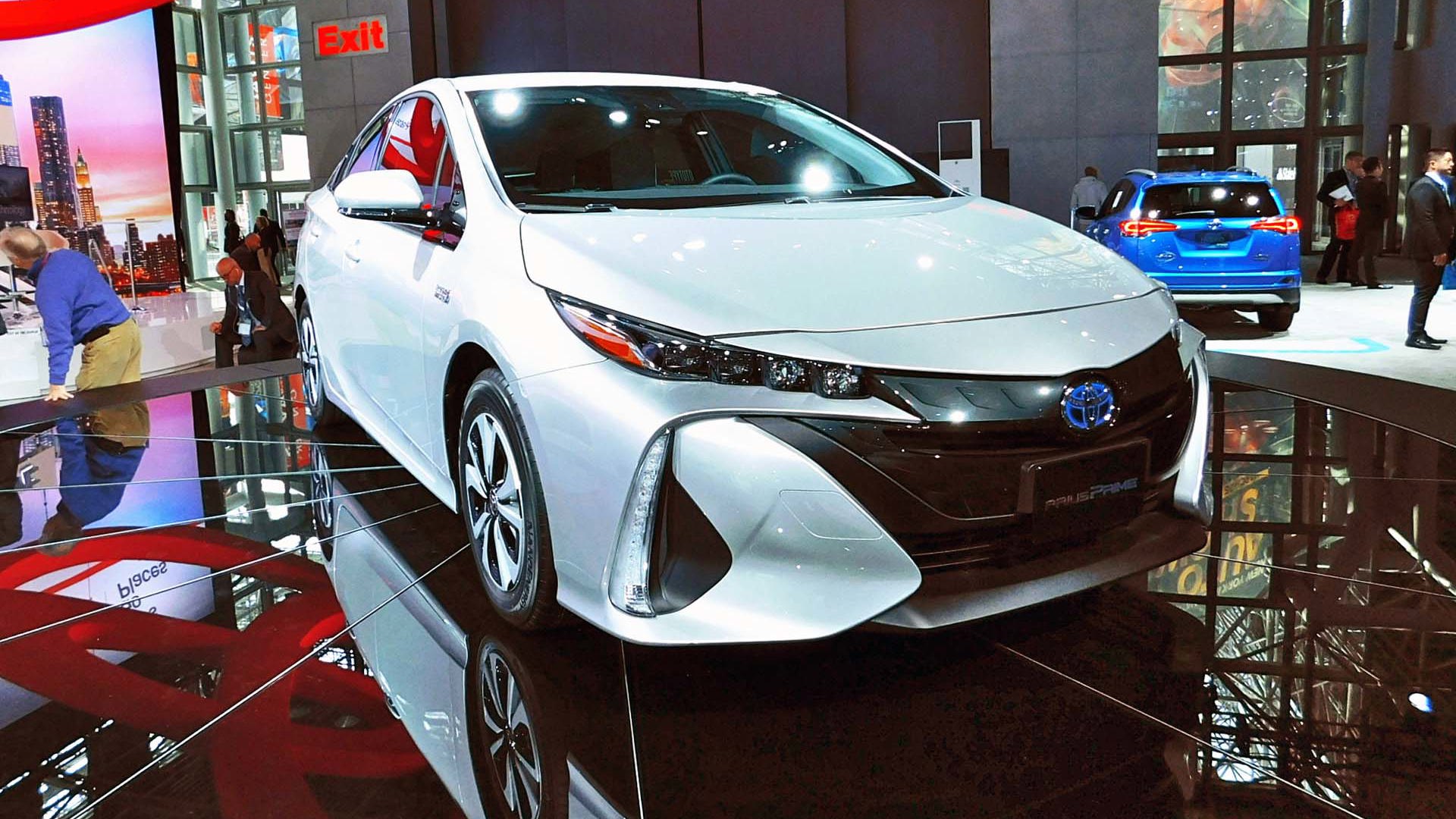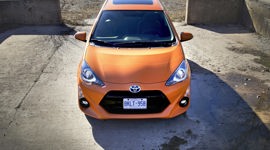Vehicle Type
Prius c drivers report good outward visibility, hilarious manoeuvrability, an overall easy-to-drive character, more on-board space than the vehicle’s size leads on.
Small hybrid
History/Description
The smallest version of the Toyota Prius hit Canadian roads for 2012, giving shoppers another fuel-sipping Toyota hybrid variant designed to be highly flexible, extremely manoeuvrable, and totally city-friendly. The Prius c became the entry-level Prius, and one “designed to function as an urban-friendly vehicle with an engaging driving experience, hatchback utility, and a combined fuel consumption rating of 3.7 L/100 km” according to Toyota. At launch, Prius c offered Canadians the lowest fuel consumption rating of any non-plug-in vehicle.
A five-door hatch, Prius c offered room for four occupants of average size, packed an expressive and youthful look, and offered an array of packages, add-ons, accessories, and feature bundles for customization. Feature and tech content included a text-message assist system, the Toyota Star Safety System, heated seats, a moonroof, navigation, cruise control, voice recognition, Softex leatherette, full multimedia connectivity, and more.
Take the Toyota Prius c as a unique offering that blends proven Toyota hybrid technology with added manoeuvrability, putting the Prius driving experience within reach of a shopper after an extra city-friendly package.
Engines
All models ran a 1.5L gasoline four-cylinder engine, complete with Toyota Hybrid Synergy Drive, a continuously variable transmission (CVT), and front-wheel drive. Combined output was rated at 99 horsepower, sufficient for around-town driving and highway use as well.
What Owners Like
Prius c drivers report good outward visibility, hilarious manoeuvrability, an overall easy-to-drive character, more on-board space than the vehicle’s size leads on, and tons of handy storage provisions within reach. Fuel efficiency, unsurprisingly, is highly rated too.
What Owners Dislike
Typical complaints centre around rear seats that tighten up quickly for larger or taller passengers, and limited performance for higher-speed highway driving or passing.
Pro Tip
Is the Prius c right for you? Remember that the “c” in this machine’s name refers to “city”, which is the environment this machine was designed for. It’s highly manoeuvrable, easy to park in the smallest spaces, and comes in what many shoppers consider a just-right size – though test drivers are advised to confirm adequate cargo and rear-seat space for their needs, and to confirm that available power output fits their driving style, especially if the vehicle will frequent the highway.
Notes from a past test drive by your correspondent suggest that Prius c is capable of highway cruising with good road manners and stability, though passing and merging performance are adequate at best. If you’re set on a used Toyota hybrid but need a little room and power, a larger Prius variant may be best.
Check out owner reviews on autoTRADER.ca
Here’s Your Test Drive To-Do List
Check all Interior Accessories Twice
Based on some sporadic information in this owner’s forum discussion, test drivers are advised to spend a few minutes before hitting the road to confirm that all on-board accessories are in proper working order. How? Operate and manipulate everything on board that runs on electricity – confirming proper operation of the power windows and locks, all touchscreen and display interfaces, all steering-wheel mounted controls, lights, climate and cruise control systems, and the like.
Though problems aren’t reported with sufficient frequency in any specific area to cause much alarm, some owners have reported issues with fussy screens, locks, radios, etc. Now’s the time to see if the Prius c you’re considering needs any attention to these areas.
Battery Life
Here’s a discussion in a popular owner’s forum about battery life from the Prius. The gist? Some owners have had batteries that fail at high mileage, most have not, and in general, battery-related issues, if experienced, tend to happen at very high mileage. In some cases listed, the battery gets weaker over time, and in others, it fails outright. Note that most Prius owners have not reported any battery-related issues, and that many variables and factors affect battery life in a hybrid vehicle.
The automotive aftermarket has some less-expensive replacement battery pack options, prompting some owners to buy very high-mileage Prius c models with weak or dying batteries at a big discount, and replacing the battery pack for significant savings.
The gist? All batteries degrade over time, but the vast majority of Prius c owners have had no issues. Still, shoppers should be on the lookout for warning signs of a weak hybrid battery (warning messages, poor performance, difficulty charging or maintaining a charge), and consider a full inspection by a hybrid-trained technician to be mandatory before their purchase. Here’s some more reading on a warning and trouble code that may appear if the battery in the Prius c is experiencing trouble.
It’s a Hybrid, and a Regular Car, Too
When shopping out a used Prius c, remember that in addition to being a hybrid, it’s also a regular car – with parts, fluids, filters, and serviceable components that all need regular maintenance and care. Confirm that all fluid changes – coolant, engine oil, and transmission fluid – have been kept up.
Also, be sure the tires, brakes, suspension, electronics and steering / alignment are all in good shape, asking a professional to perform a full inspection before you buy. Given the complex nature of the Prius c, and numerous proprietary systems, this inspection should only be carried out by a Toyota technician, for maximum peace of mind.
Finally, on your test drive, zero in on the sound from beneath the vehicle on a rougher road with your ears, noting that clunking, popping or clanking sounds typically indicate a wear issue with some suspension component that will require attention.
Check the Lighting System
Based on information in this discussion, shoppers are advised to confirm proper functionality and performance from the Prius’s lighting system, confirming that no bulbs are burned out, that no warning messages relating to the lighting system are illuminated in the instrument cluster, and that the headlights and high-beams work sufficiently on a nighttime test drive, if possible.
Wheel Bearings and Brakes
If any unwelcome scraping or grinding sounds are apparent while driving at a lower speed with the windows open, possibly accompanied by one or more warning messages relating to the brakes and/or traction control system, the Prius c you’re considering may need new wheel bearings and/or wheel speed sensors.
These parts and sensors may be integrated with one another, and the sensor components provide vital information to the vehicle’s on-board computer, and can cause problems if they’re not working properly. Some owners have had these components serviced or replaced under warranty. Here’s some more reading. Note that one user in this thread advises the original poster to disconnect the 12-volt battery for “a few minutes” to try and effect some reset of the system, though this is strictly not advised.
Other Useful Information
Software Updates and Recalls
Bring the VIN number of the vehicle you’re considering to a Toyota dealer, and have a service advisor check to see if any software updates may be available for the unit you’re considering. Updated software is dealer-installed, typically to optimize or correct the operation of one or more systems, and may help prevent possible headaches in a plethora of systems. Running the most up-to-date software is an excellent idea for long-term trouble-free motoring.
With the VIN number, the service advisor can also check to see if the Prius c you’re considering if affected by its single safety recall that corrects a potential short-circuit and fire hazard with the block-heater cord (2016 and 2017 models only). If so, the dealer will correct the problem free of charge. Note that the vehicle’s current owner may be required to appear in person before a dealer checks for updates and recalls against the VIN.
Triple-Check the 12-Volt Battery
Like many hybrid cars, the Toyota Prius c has both a hybrid battery pack, and a conventional 12-volt battery. If the 12-volt battery is weak or dying, numerous sporadic problems across multiple electronic systems are possible, as they may not be receiving enough power to run properly. Ensuring that the 12-volt battery in your new-to-you hybrid is in good shape can fend off potential headaches, so have the battery tested and replace it early if it doesn’t pass with flying colours. Consider using a trickle-charger when you won’t be driving the Prius c for more than a few days for added peace of mind, especially if you’ll frequently make shorter, in-town trips that can shorten battery life.
The Verdict
As Toyota hybrids tend to, Prius c looks to be a solid buy from a reliability standpoint, provided that the unit you’re considering is properly and fully maintained. No issues are reported with enough frequency to warrant concern, and a worry-free Prius c experience will likely involve little more than staying on top of its maintenance requirements. Still, as with any hybrid, a full inspection by a Toyota technician is strongly advised ahead of your purchase.
Crash Test Ratings
IIHS: Top Safety Pick (2012 and 2013)
NHTSA: 4/5 Stars
